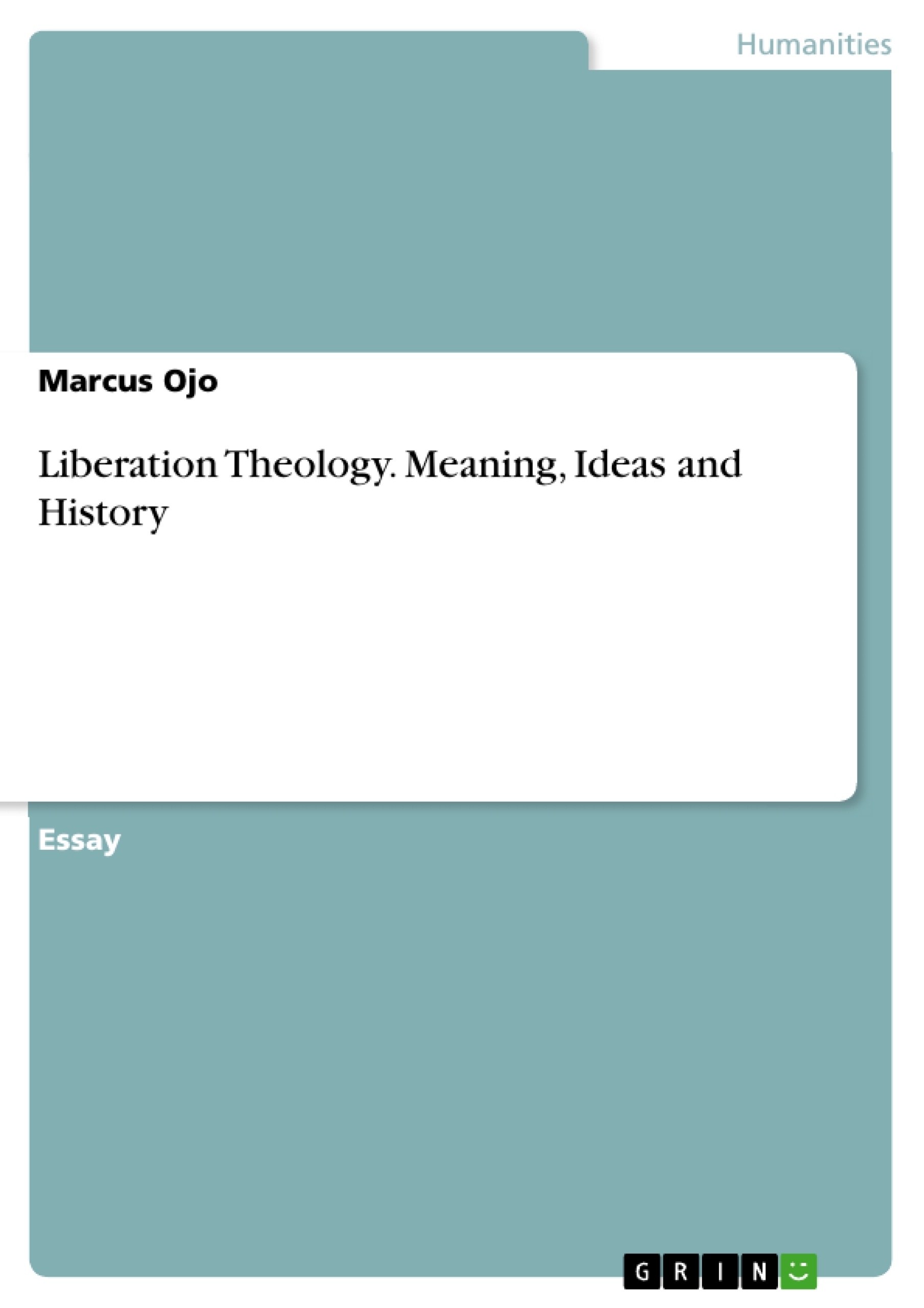This paper explains liberation theology, and its meaning in different school of thought, such as Latin-American Liberation Theology, African American Black Liberation Theology and Feminist (Womanist) Theology.
Liberation theology is a set of ideas about how Jesus and his followers viewed social issues, such as helping the poor, inequality, and charity work. There are non-Christian ideologies that promote ideas similar to liberation theology, but the term is generally used to represent Christian ideas and a variety of different definitions of liberation theology abound.
Pope Francis since a little more than a year into his papacy, seems to have been speaking loudest about economic injustice, alternatively denouncing “trickle-down” economics and calling over and over again for a ‘poor church for the poor.’ The Holy Father’s supporters and opponents alike often blame this particular attitude on one source: liberation theology”.
Table of Contents
- DEFINITION
- SUMMARY
- LATIN AMERICAN
- African American (Black theology, or black liberation theology)
Objectives and Key Themes
This term paper examines Liberation Theology, a radical movement within Roman Catholic theology that aims to liberate people from unjust economic, political, or social contexts. It explores how this theological approach interprets Christianity in relation to the experiences of the oppressed, particularly the poor, and their struggles for liberation.
- The relationship between Christian theology and political activism
- The role of the church in supporting the poor and marginalized
- The critique of capitalism and its impact on social justice
- The use of Marxist philosophy as an analytical tool in interpreting Christian doctrines
- The diverse expressions of liberation theology across different contexts, including Latin America, Africa, and the United States
Chapter Summaries
- DEFINITION: This section defines Liberation Theology as a Christian theological approach emphasizing the liberation of the oppressed. It highlights its focus on socio-economic analysis, particularly concerning the poor, and its engagement with other forms of inequality like race and caste.
- SUMMARY: This chapter provides an overview of Liberation Theology's development in the 1960s, its focus on liberation from economic and political bondage, and its use of Marxism as an analytical tool. It also mentions the various expressions of Liberation Theology, including Latin American Liberation Theology, Black Liberation Theology, and Feminist Theology.
- LATIN AMERICAN: This chapter explores the origins and development of Latin American Liberation Theology, which emerged in response to the injustices of industrial capitalism and its impact on the poor in Latin America. It highlights the movement's focus on building "base communities" to provide religious activism and direct services to the poor, its critique of the Catholic Church's complicity in exploitation, and its emphasis on the interconnectedness of race, class, and economic exploitation.
- African American (Black theology, or black liberation theology): This chapter examines the origins and development of Black Liberation Theology, which originated among African American seminarians and scholars in the United States. It explores its focus on liberating African Americans from oppression, its contextualization of Christianity within the experience of African Americans, and its critique of racism and segregation.
Keywords
Liberation Theology, Christian Theology, Social Justice, Poverty, Oppression, Capitalism, Marxism, Latin America, African American, Black Theology, Feminist Theology, Base Communities.
- Quote paper
- Marcus Ojo (Author), Liberation Theology. Meaning, Ideas and History, Munich, GRIN Verlag, https://www.grin.com/document/1248065




